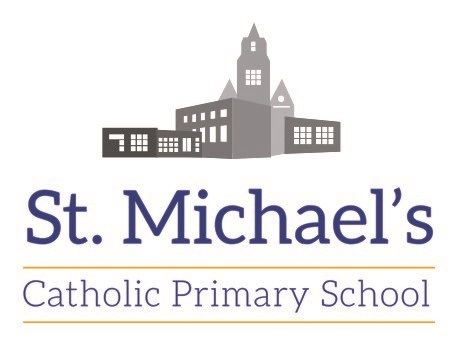EYFS
Welcome to Early Years! In our classroom we strongly believe that every child is a unique child. As practitioners, our job is to understand and observe each child’s development and to observe their learning and to track and assess their progress. By doing this, we are then able to plan next steps for every child to ensure that their progress is continual and ongoing. We work hard on building positive relationships with every child as we feel that this encourages them to be strong, independent learners by the end of Reception.
Over the past few years we have been working hard to develop our environment to provide every child with rich learning opportunities that are stimulating and inspiring. Our classroom offers many areas for children to develop new skills and for them to be able to build upon existing skills. We encourage independence in each area by providing challenging and exciting opportunities for every child.
In our writing areas we provide a range of different resources and challenges, which allows the children opportunities to write for different purposes based upon their own interests.
In our reading areas we ensure that the children are given access to a range of texts, including fiction and non-fiction, to encourage a love of reading. We have also introduced comics and magazines based on the children’s interests along with puppets, story blocks, masks and story spoons.
In our number areas we provide opportunities for children to experiment with number, using a range of different objects. These objects encourage children to independently build on their skills of counting, ordering, sequencing and recognising. We have also incorporated shape, space and measure into our number areas to provide opportunities to develop everyday skills of time, measure, money and shape (including 2D and 3D shapes).
Our construction area allows children to build on their personal, social and emotional skills by encouraging them to work together, share resources and listen to each other’s ideas. This enables the children to successfully use this area to create different buildings and objects using the resources provided.
In our malleable area, children are provided with a range of resources that encourages them to strengthen and develop their fine motor skills. We often change what is in our malleable area, but some of our favourites are: playdough, noodles, straw, pasta, buttons, ice, jelly and shaving foam.
Our role play area is inspired by Reggio Emilia. The children are encouraged to use real cutlery and crockery alongside real fruits and vegetables. The children are trusted to chop the fruits and vegetables up independently during their play. They are also given real dry foods such as pasta and rice to explore during their play.
In our water area the children are encouraged to develop their fine and gross motor skills. Water play gives children many opportunities to develop these skills and their hand-eye co-ordination through actions like pouring, squeezing, squirting, scrubbing and stirring.
In our creative area the children are encouraged to experiment with a range of media and materials, finding out about the properties and modifying and manipulating them. This includes exploring sounds, patterns, movement and different tools and techniques and enables children to create wonderful inventions and representations of their own experiences.
We strongly believe that children gain enormous benefits from learning outdoors. Our outdoor environment allows opportunities for big scale play, problem solving, and creativity and enhances physical activity. Outdoor play extends children’s learning, allowing them to explore and investigate their surroundings. Every Friday our Reception children participate in Forest School. Forest School allows the children to be inquisitive, inventive and experimental. It helps to allow children to use their initiative and encourages independence.
Curriculum
Intent:
- At St Michael’s Catholic Primary, we have high expectations for all children. We aim for all groups of children to make progress across the curriculum and be ready for the next stage of their education, achieving good outcomes.
- Our aims are, to develop lifelong learners in a learning environment that is happy, provides high quality care, promotes independence, supports emotional well-being, celebrates and promotes individuals interests and fascinations.
Implementation:
- A carefully designed and sequenced curriculum has been developed using, the new EYFS Educational Programmes for each area of learning, recent research and additional guidance. It identifies key skills and knowledge for children to be taught term by term, deepening learning and enabling them to achieve the early learning goals at the end of the phase.
- The EYFS curriculum is the foundation to the schools personalised curriculum starting with the individual child and widening their learning to local, national and international experiences (see whole school curriculum overview).
- Through high quality texts, fiction and non-fiction, a broad balanced curriculum is facilitated. A curriculum enhanced through a range of first-hand practical experiences, within and beyond school.
- High quality learning environments are in place indoors and outdoors, facilitating early years pedagogy. They provide opportunity for children to practise, consolidate and apply ongoing and new learning, across all areas of learning and the characteristics of effective teaching and learning.
- Across the daily routine, practitioners ensure children have a balance of child-initiated and adult-led activities. It is recognised that young children learn by, taking part in activities guided by knowledgeable adults and leading their own learning, sensitively supported by practitioners. During the summer term, the balance of learning is developed to support smooth transition into Y1.
- Practitioners engage with parents at points of transition, within home learning and the observation process. The school SENCO, part of the EYFS Team, ensures rapid response to children identified personal needs. Integrated services are used to maximise children’s learning potential.
- In the Foundation Stage, we set realistic and challenging expectations that meet the needs of our children. We achieve this by planning to meet the needs of boys and girls, children with special educational needs, children who are more able, children with disabilities, children from all social and cultural backgrounds, children of different ethnic groups and those from diverse linguistic backgrounds.
- The seven areas of learning in EYFS are: □ Communication and Language □ Personal, Social and Emotional Development □ Literacy □ Mathematics □ Understanding the World □ Expressive Arts and Design ** The characteristics of effective teaching and learning are: □ Playing and Exploring □ Active Learning □ Thinking and Creating Critically
Impact
- Formative assessment, day-to-day observations of learning, are integral part to the learning and development processes in EYFS. Staff observe pupils to identify their level of achievement, interests and learning styles. These observations are used to identify and shape future / next steps in learning.
- Practitioner best-fit assessment judgements are regularly moderated to ensure accuracy.
- Majority of children at make good progress and are ready for the next stage of their education. Historical data shows the 63% of children achieving the ‘expected’ level at the end of EYFS.
- Parents are regularly informed of their child’s progress throughout the academic year.
Come and take a look at our classroom...

|

|
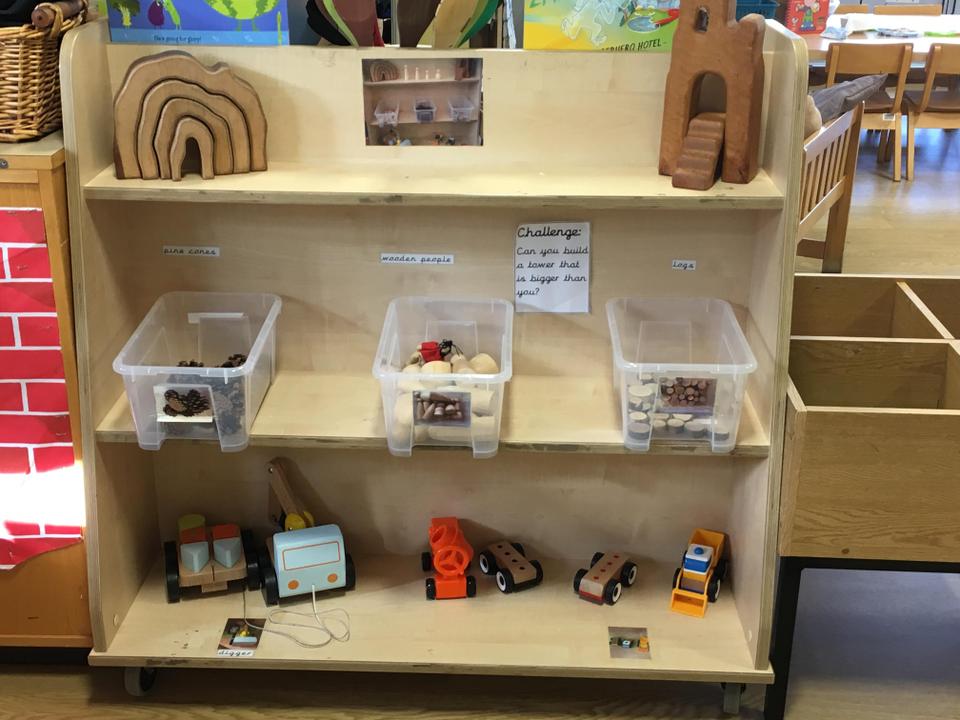
|
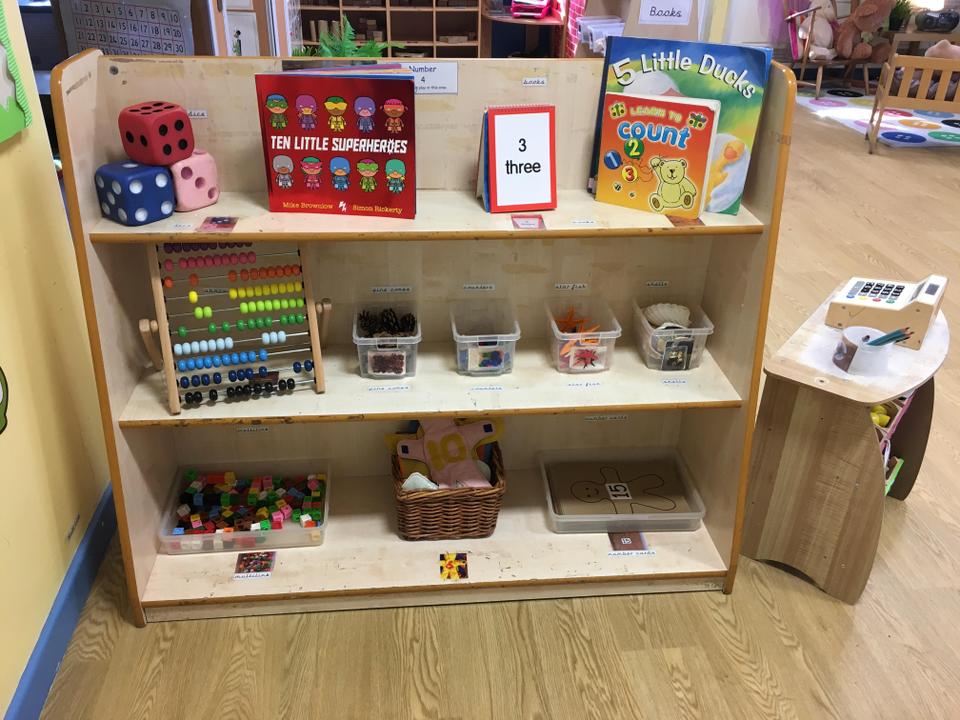
|

|
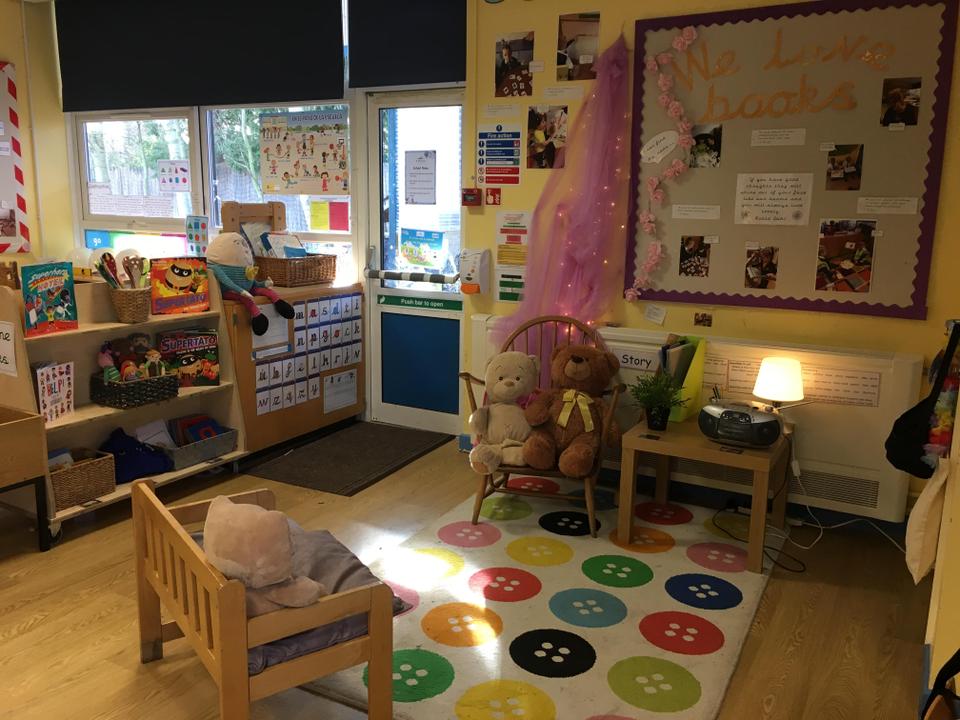
|

|
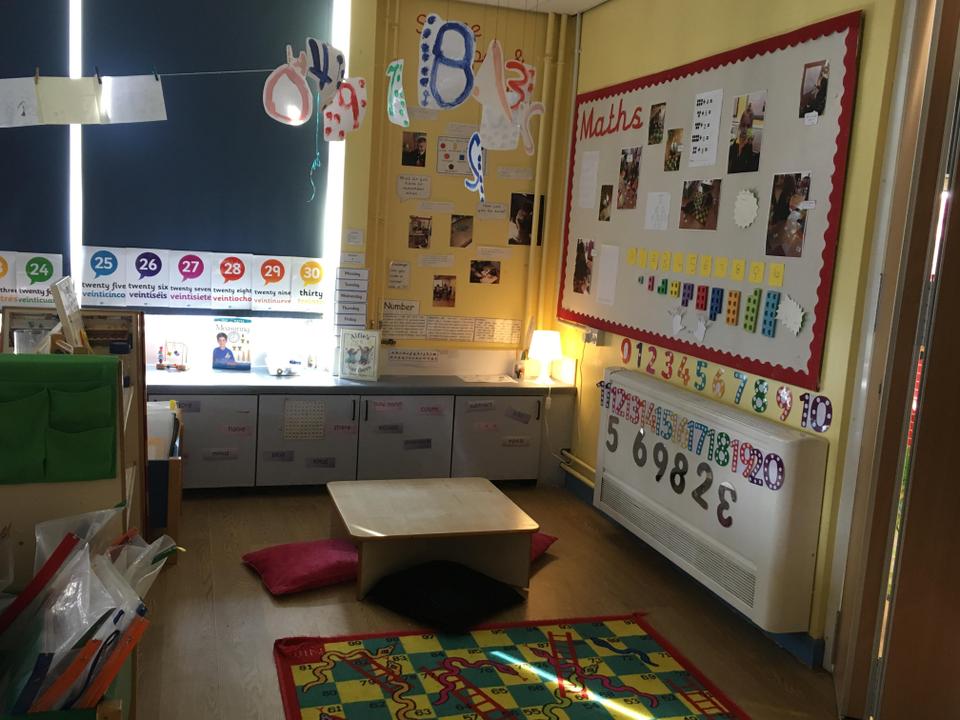
|

|

|

|

|

|

|
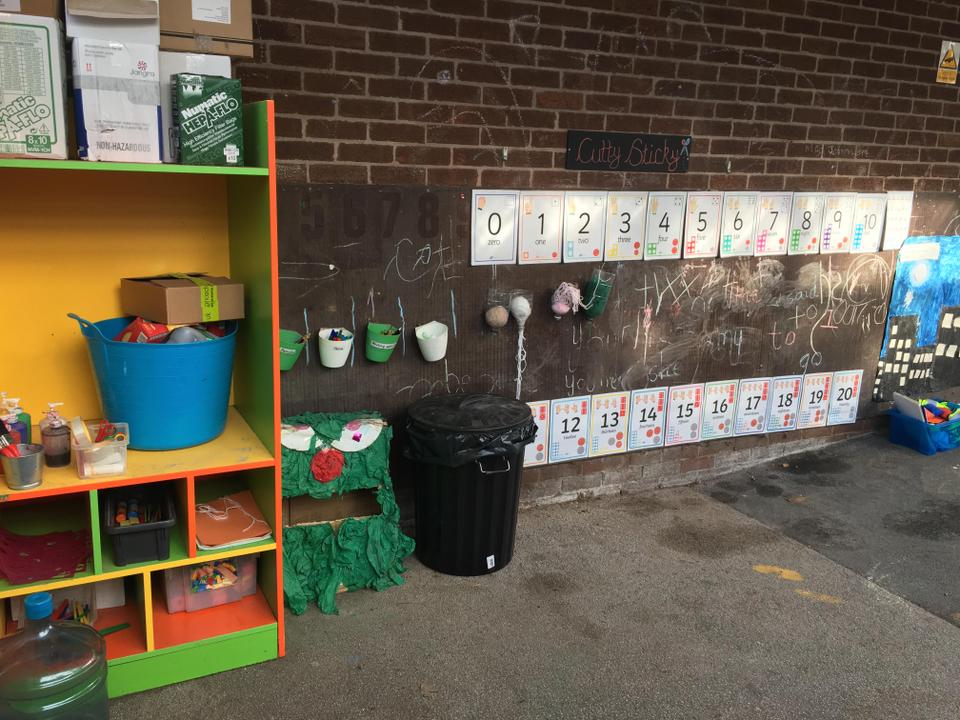
|

|
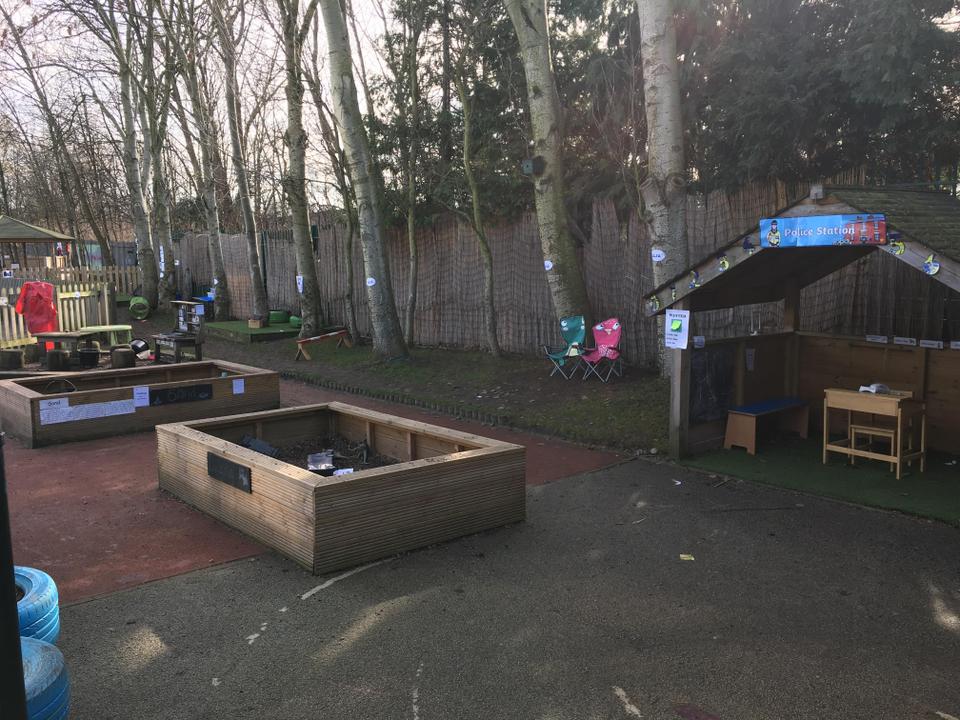
|
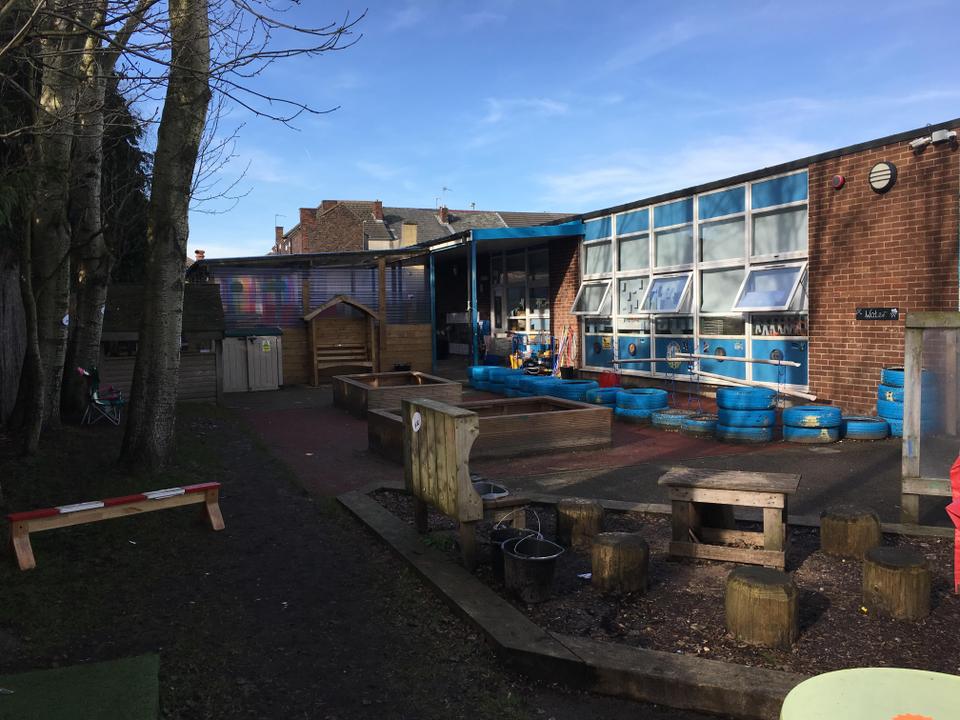
|

|

|

|

|
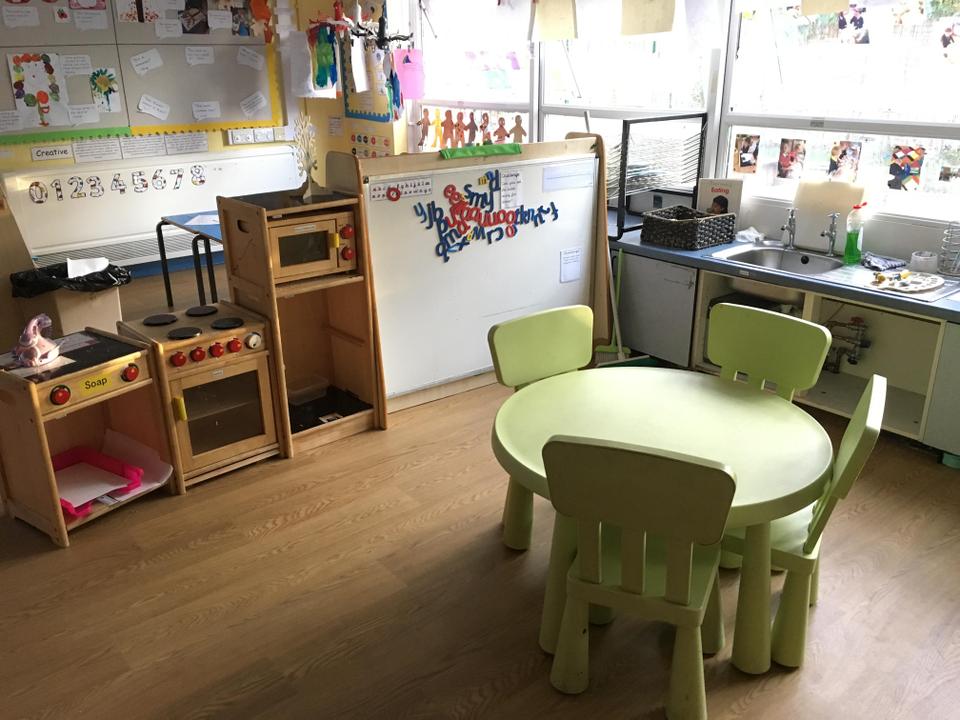
|
Miss Smith - Foundation Stage Leader
Miss Strong - Teaching Assistant
Miss Abbott - Teaching Assistant
Miss Roberts - Teaching Assistant
Miss Magan - Teaching Assistant
